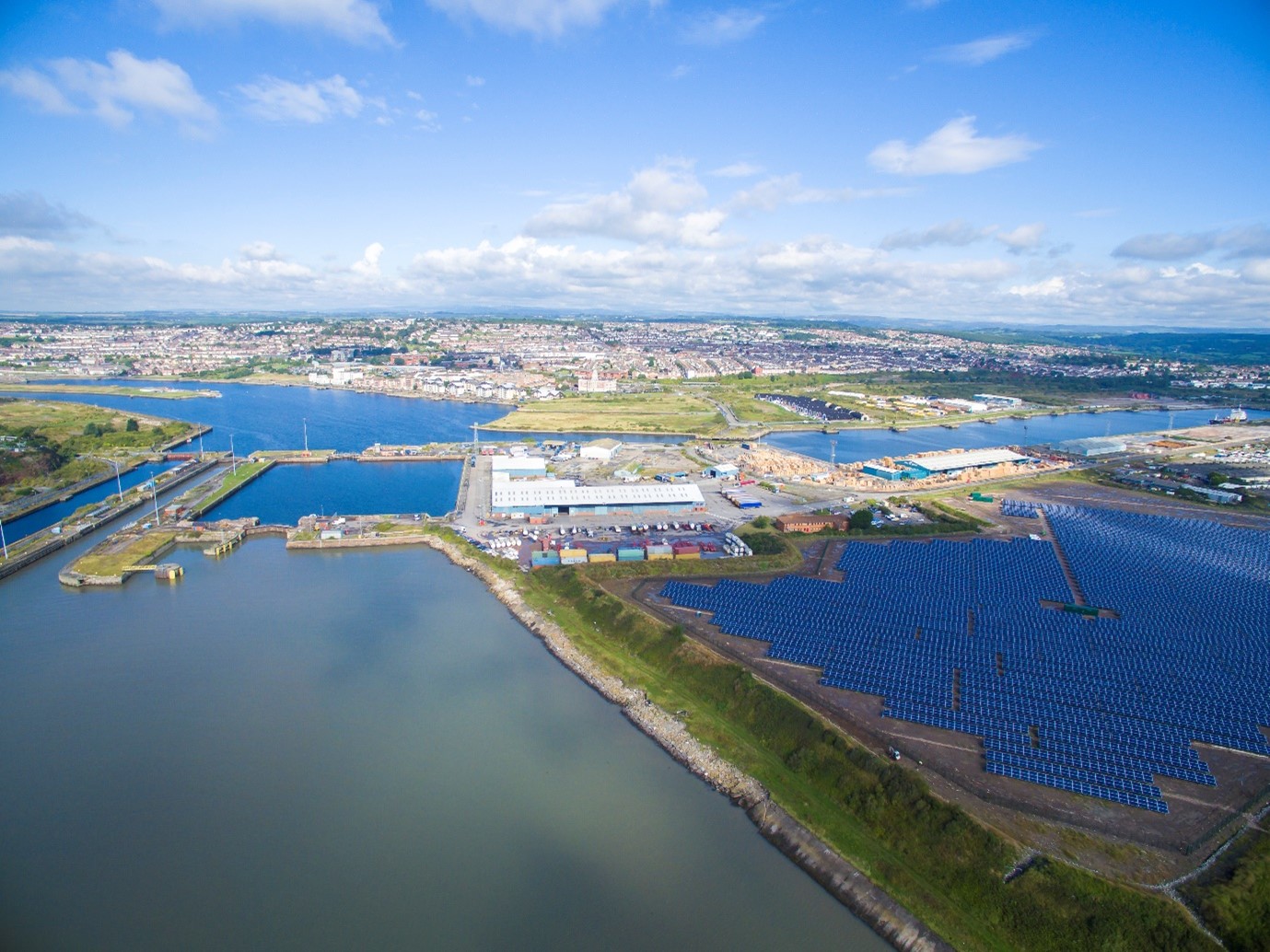How Can Hydrogen Decarbonise UK’s Ports?

The UK’s leading port company, Associated British Ports (ABP) and Hynamics, EDF Group subsidiary, have announced a partnership to evaluate developing low-carbon hydrogen production and distribution at the Port of Barry. How can hydrogen be a solution to decarbonising our UK ports?
Both of the parties have entered a Memorandum of Understanding (MoU) to deliver a feasibility study that will look at ways to use low-carbon hydrogen to decarbonise industrial processes.
It forms the first part of a wider plan to develop a decarbonised growth hub at the Port of Barry, that would seek to decarbonise existing industry, which supports several jobs and is a major driver of the local economy.
Knowledge will be shared to explore hydrogen’s potenital for decarbonising ports
Nicholas Hughes, Senior Business Development Manager at Hynamics explained that this MoU will be vital in amplifying the hydrogen transition for the Port: “We are delighted to enter a partnership with ABP and potentially play an important role in the future development of a low-carbon hydrogen ecosystem in the Port of Barry.”
Continuing, Nicholas added that its role in the project is to help explore how hydrogen can be used successfully: “The Hynamics team is ready to bring its expertise and share knowledge gained from its project at Teesside to realise the full potential of decarbonisation opportunities at the Port of Barry for industry and transport.”
As of today’s announcement, we will be working to explore the project’s technical parameters and evaluate, then secure, interested offtakes.
ABP and Hynamics will both explore the opportunities to replace natural gas used in industrial production processes with low-carbon hydrogen.
They will also explore ways to use low-carbon hydrogen as an alternative to fossil fuels in other sectors such as port operations and transport.
The project will support the South Wales Industrial Cluster’s Vision
In addition to existing industry, it is intended that the combination of low-carbon and transport infrastructure will attract investment and job creation from new industry. This is one of the key components of the South Wales Industrial Cluster’s Vison.
The South Wales Industrial Cluster’s Vison showcases ambitious plans to achieve net zero industries in South Wales by 2040, equating to 40 per cent of current Welsh carbon emissions; retention of 113,000 jobs and a net positive increase in jobs overall; unlocking £30 billion investment opportunities in the region; and growing the £6 billion Gross Value Added from South Wales Industry.
South Wales is home to a significant industrial base, including the UK’s largest integrated steelworks, one of the UK’s seven oil refineries and one of only four nickel refineries in Europe.
Also, there are several other energy intensive manufacturing plants and industries within a diverse range of sectors including steel recycling, cement, paper, glass, mineral wool and chemicals, food and general manufacturing industries.
The South Wales Industrial Cluster’s Vision collaboration can help to deliver regional industrial decarbonisation, and challenge and accelerate the timescales laid out by the UK’s emissions policies, contributing to a more prosperous Wales.
Hydrogen could be essenital in driving low-carbon infrastructure
Commenting on the partnership between ABP and Hynamics, Ralph Windeatt, Head of Business Development at ABP said that the project supports ABP’s existing sustainability goals: “ABP has exciting plans for the Port of Barry to become a Clean Growth Hub for low-carbon manufacturing. This forms part of the company’s wider Ready for Tomorrow sustainability strategy where we are not only working on our own decarbonisation transition but increasingly play a crucial role in the decarbonisation of other industries such energy, industry and transport.
Hydrogen will be a critical resource to support Wales and the UK’s journey to net zero. This is a significant development to drive low-carbon infrastructure at the Port of Barry.
Ralph continued by highlighting that the project will work as a domino effect for driving future opportunities for hydrogen in South Wales: “A successful study will also research a roadmap for future expansion of large-scale, low-carbon hydrogen deployment at the port.
“It will also explore opportunities for flexible low-carbon hydrogen supply direct to local industry, while providing refuelling capability for municipal and local transport. Working with our external partners at SWIC, Welsh Government and the Vale of Glamorgan, we intend to attract new industry to the Clean Growth Hub to drive investment and job creation for the region.”
For the ports industry, using hydrogen could mean a massively reduced carbon footprint and be used on-site at ports to power shore-side FCEVs such as loaders, forklifts, and buses, as well as potentially being used to power fuel cells to provide completely clean shore-to-ship energy when the vessels are in dock.

